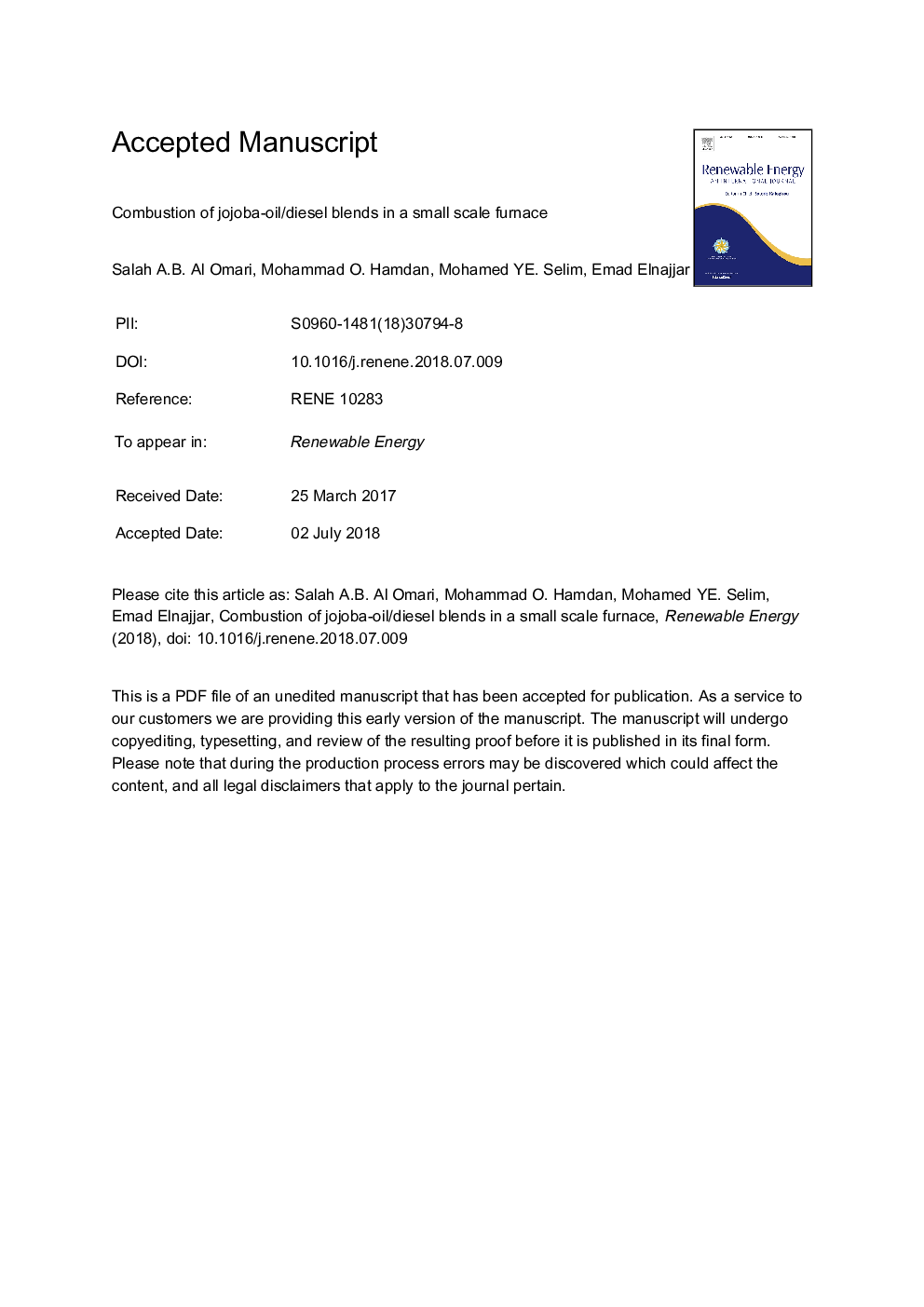| Article ID | Journal | Published Year | Pages | File Type |
|---|---|---|---|---|
| 6763671 | Renewable Energy | 2019 | 37 Pages |
Abstract
This experimental study investigates the combustion and pollutants emissions from a small scale furnace burning diesel fuel blended with raw jojoba oil. Jojoba oil to diesel proportions in the blends (on mass basis) ranging from 0 to 35% are considered for total blended fuel flow rate of about 8â¯kg/h. Higher fuel supply rates of about 10â¯kg/h were needed in order to allow for reaching higher jojoba share in the blends up to about 60%. This allows for securing sufficient amount of the higher volatility component (diesel) whose combustion would support the vaporization and subsequent ignition and combustion of the heavier jojoba oil. The presence of jojoba in the blends leads to a clear reduction in NOx and hydrocarbon (HC) emissions but it showed less impact on CO levels. Due to its high viscosity, jojoba in the blends impacts spray formation hence seems to have an indirect detrimental effect on CO emissions. Moreover, jojoba oil in the blends adversely impact thermal radiation to furnace walls due to less sooting tendency of the flame when jojoba is present. To some extent, this is also attributed to the way jojoba influences spray processes.
Keywords
Related Topics
Physical Sciences and Engineering
Energy
Renewable Energy, Sustainability and the Environment
Authors
Salah A.B. Al Omari, Mohammad O. Hamdan, Mohamed YE. Selim, Emad Elnajjar,
